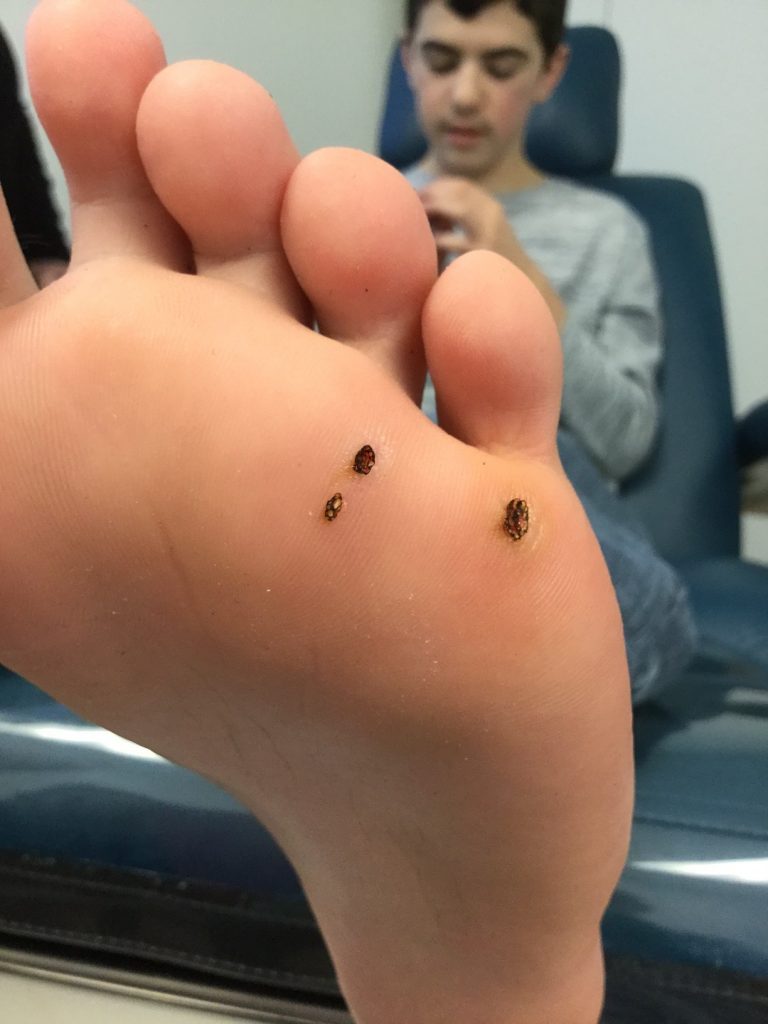

Those at High RiskĪs we age, most people build immunity to HPV, which is why plantar warts are more common in children and young adults than others. While the virus enters you from that initial exposure, it can take weeks for it to run its course through your system and to develop the warts themselves.
#Wort on top of toe skin
Once stepped on, the virus can enter your skin through small cuts or scrapes on your feet, instantly infecting you. Think pools, showers, yoga class mats, etc. Plantar warts, in particular, are caused by the human papillomavirus (HPV).īut how do you pick up the virus? The virus can live on surfaces, particularly in damp, moist environments. If you check the boxes above for the symptoms of foot warts, be sure to understand the cause of plantar warts before assuming that’s your diagnosis- since many other conditions produce the same or similar symptoms of foot warts but are caused by different things (like corns or blisters).Īny wart on the body is the result of a viral infection. Notice the white “spots” on the callus, indicating the warts are growing inward. This makes it harder to detect the presence of warts. While calluses are typically yellow, flat, dry patches of skin, warts growing within the space of the callus have a tendency to grow inward instead of out/upward- meaning they flatten instead of raising. The formation of the callus is your body’s natural reaction to prevent the spread of the viral infection, often forming as a result of the wart’s spread.

It can be hard to spot plantar warts when they are also associated with calluses.

“Palmar” warts occur on the hands or palms). While warts can appear on your hands or other parts of your body, we’re here to discuss foot-formed warts, referred to as “plantar warts.” (Plantar being in reference to the pain you feel when planting your feet. In this post, we’re here to help you determine if those bumps are foot warts, AKA plantar warts, and to get you the care you need. Whether these wart-like masses are in between your toes or on the bottom of your feet, they can be a real burden when standing or walking- and a true nightmare for athletes or active folks. When you have your shoes on, do you experience a painful rubbing sensation on bumps that resembles blisters? There’s something strange about these growths too, since they have little black dots on them…

Febru2:13 pm Published by Foot and Ankle Group


 0 kommentar(er)
0 kommentar(er)
